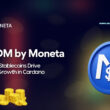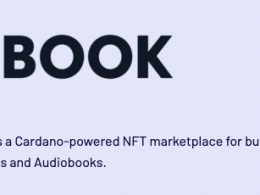We can always learn from mistakes or failures. We can identify real experiences, whether ours or those of others, to draw conclusions to make better decisions.
In the blockchain industry, as in any other type of industry, there are investment risks. Everyone has their risk profile to know how much pain (loss) they can bear, but what applies to everyone equally is that they must carry out research on their investment decisions, to minimize possible damage. However, no one is 100% correct all the time, but like I said, you can minimize damage.
I have written more than 60 articles about the proposals of the Project Catalyst, since FUND5, July 2021, and I have read many more to be able to select the ones that I considered most interesting to develop the Cardano ecosystem, and also the ones that seemed most viable in its realization. I find in common that many of the projects lack detail on the application of the budget, the sustainability of the business model, as well as a reasonable explanation of the Roadmap.
I could say, as a general quick conclusion, that there are good developers but they seem to not have adequate accounting and financial advice, to be able to develop a product that also has a good business model. I see management problems in some of them.
The reason for this article is not to encourage a “witch hunt”, but it is a forensic analysis to understand and learn.
In an article I published more than a year ago, I explained the risks in DeFi: Analyzing the Risk in Decentralized Finance (DeFi), and in particular I exposed the “DeFi risk analysis guide” that I will put into practice for this very article.
The Facts
On November 23, 2022, both the Ardana and Orbis teams suspended their development.
Ardana said: “Hello Ardana community, Unfortunately due to recent developments with regards to funding and project timeline uncertainty, the Ardana project has had to come to a halt. Our code will remain open source for builders to continue our work going forward as they wish. Development on Cardano has been difficult with a lot of funding going into tooling, infrastructure and security. This along side the uncertainty around development completion has led to the best course of action being halting development of dUSD. Remaining funds and treasury balances etc will be held by Ardana Labs until another competent dev team in the community comes forward to continue our work. We want to thank all of you for your support throughout our development. We will continue to be involved in the Cardano community. More updates surrounding the ongoing ISPO will be coming soon.”
Orbis said: “Unfortunately due to constrained funding and uncertain conditions, Orbis Labs is unable to continue building and the project as come to a halt. This is unfortunate given the amazing research and work that has been produced. The NFT has been halted until further notice when a continuation plan is set out for the core zk-rollup solution. We as a team will we will do what is necessary for investors and community members to be made whole going forward. This was an unexpected result due to committed investors very recently pulling out of the project and recent events in the crypto space which affected Orbis directly. We want to thank all of you involved and we are currently working out a plan going forward for the project long term. For now, the Orbis Labs Github organization will remain open source and open to outside contribution. The community groups have been halted until further notice.”
The suspension came as a surprise to most of the community, from what I can see on social media.
In addition to the simultaneity of the decision for both projects, there is an important fact that unites them: the founder is the same, Ryan Matovu.
Ryan Matovu: the Founder
As you can see on his LinkedIn, he says: “Building on Cardano | Blockchain Technologies. Founder with a wide range of experiences working in the blockchain industry.”
IOHK, the Cardano Blockchain developer company mentions Ryan Matovu on their website: “Ryan Matovu is the founder of Orbis, the first layer 2 zk-rollup scaling solution for Cardano, and Ardana, a Cardano DeFi Stablecoin protocol. He has years of experience in blockchain in both leadership and development, contributing to protocols across different ecosystems.”
Twitter user @DeFiFUDDestroy denounced in a Twitter thread November 4, 2021 ArdanaProject @ ryanmatovu RYAN MATOVU this guy is a shitcoin scammer first $YFD #YFDFI Finance #YFD second was $PLE #plethori
Third is $DANA @ ArdanaProject SERIAL SCAMMER AND YOU ARE WALKING RIGHT INTO IT AGAIN. 3 SHITE PROJECTS HYPED UP AND LAUNCHED I BET $DANA dead 3mo. ! ”
Plethori was a failed crypto-ETF creation and trading protocol.
The cryptocurrency analysis platforms CoinMarketCap, Messari, Coingecko do not show information about the PLE token, from Plethori. Coinbase also delisted PLE.
It is not possible to access the Plethori website https://plethori.com.
However, Plethori is still an active account on Medium.
I was able to confirm a relationship between Matovu and Plethori in a transcript of an April 2021 AMA, where Ryan Matovu introducing himself as CEO of Plethor: Plethori AMA Recap Crypto Revolution Community.
In another post by a different user, we can see another transcript of an AMA also from April 2021, by Ryan Matovu also as CEO of Plethori and Callum Mitchell-Clark as CCO: Recap of the Plethori AMA with Blockchain Space
In the Telegram group Among these interviewers Ryan Matovu (Booker) is introduced as CEO and as Callum Mitchell-Clark CCO of Plethori.
On January 27, 2022, the transcript of an AMA with Callum Mitchell-Clark MEXC AMA Plethori – Session with Callum Mitchell-Clark introducing himself as Plethori’s CEO was released, showing that Ryan Matovu was no longer its CEO:
Another complaint about Matovu is as the founder of Your Finance Decentralized (YFD token).
The presentation I could find from YFD is: “YFD aims to become the first DeFi Financial Center fully powered by the community. The YFD ecosystem is a community-centered project aiming to rebuild all classes of financial services provided in traditional finance but through DeFi protocols”.
Something similar also happens, their website https://yfd.io/ does not exist, but I found a listing on Coingecko, placing the token in Rank #3732 by market capitalization, at the time of writing this article.
Matovu has two Usernames in Telegram, @crypt10crypt is the accused related to YFD, which does not currently register said link, he currently calls himself ‘Booker’:
In the internet search engine, no relationship between Matovu and YFD appears.
Ryan Matovu explains his disassociation from Plethori and his relationship with YFD:
“I was the CEO of Plethori, but that project I left way over a year ago for good reason which is why I am here in Cardano. I was referring to YFD and other people mentioned where I was not CEO or even part of management. I had a job…”
Ardana
Ardana started in November 2020. The team behind the project is Ardana Labs, which defines the project as “Ardana is the leading stablecoin and stableswap DEX on Cardano”.
Ardana was building an all-in-one stablecoin ecosystem for Cardano, and had seen further development in the past year. However, the bad market situation in the industry (crypto-winter) seems to have been the final blow. The platform’s native token $DANA crashed by almost 80% after the project halt announcement was made.
Ardana offered an on-chain asset-backed stablecoin, and a decentralized stablecoin DEX. The project proposed backing the stablecoin verifiably by excess collateral on-chain.
A DEX was also proposed that would allow swaps with minimal fees, with low-risk performance opportunities for liquidity providers.
$DANA was their governance token. Its issue was 125,000,000.
In the official document it mentions Ardana’s treasury address: addr1qyvv8cr08xpurkv0quf2fvdr2n8scsk90ev9cqeyaxhv8pzxcajsmrcv0u2qzzrljlm0cjy3sfpzhqdge0k7m9cmqgas5jhjdx with a balance of ₳ 21,269923 y $DANA 4,786,199.800000 at the time of writing this article.
Its website shows that it received money from Venture Capital companies for its development:
There is cFund, an early-stage sector agnostic venture firm in the Blockchain industry anchored by IOHK and managed by Wave Financial. The firm is a dedicated team of investors and entrepreneurs zealous about blockchain technology and digital assets looking to back ambitious founders globally.
cFund’s website shows their investments:
Charles Hoskinson, as cFund’s Investor and Advisor, said: “Looks like I might have just lost 500k on it. I was an investor through the fund. Waiting for a readout from them”
At the end of October 2021, the big investors in the first round of financing were cFund, Ascensive Assets and Three Arrows Capital. Other investors that made significant contributions included Kronos Research, Mechanism Capital, Morningstar Ventures, and mgnr.io.
There were a few individual angel investors from important firms who showed their trust in Ardana. Notable among them were Taiyang Zhang, the founder of Ren Protocol and KeeperDAO. David Post, the MD of Chainlink Labs, and Justin Sun, the founder of Tron, are other notable names. Ardana Raises $10M From Its First Funding Round.
Official announcement: Ardana completes $10m fundraising rounds led by Three Arrows Capital, cFund & Ascensive Assets.
Days later, Ardana successfully raised $1.5m in the first rounds of its public IDOs: Ardana IDO raise $1.5m for Cardano stablecoin and ADA collaterisation.
An ISPO (Initial Stakepool Offering) was made to distribute the DANA tokens. The ISPO was announced from July 4, 2022 to December 31, 2022, with the official end on January 5, 2023 at 21:45 UTC.
The total $DANA for the ISPO will amount to 4 million $DANA tokens (originally, it was 2.5 million $DANA tokens), with a maximum cap of 69,444 $DANA distributed during each epoch.
The ISPO was carried out through the Ardana Stake Pool Alliance (ASPA), in order to maintain the decentralization of Cardano, in different pools that were not owned by Ardana.
The $DANA token was to be distributed among the delegators of the liquidity mining portion. The distribution was scheduled through TosiDrop, Cardano’s token distribution service. Users will be able to claim their first distribution share on Drip Dropz during the next epoch on July 9th, 2022, at 21:45 UTC.
You can see details of the ISPO at: Announcement: The Ardana ISPO is here!
Roadmap

The project defines its members as: “Ardana has a world class team”.
Website: https://ardana.org/
Orbis
The Orbis project started in October 2021, and was focused on scalability, with an L2 protocol (layer 2) using zkSNARK Rollups, and created by Orbis Labs, with the aim of scaling Cardano, through the use of a already proven technology, to achieve better transaction performance, while keeping intact the other two parts of the blockchain trilemma, security and decentralization.
You can understand the potential this project had (has?) in my technical article: Orbis: A Cardano Scaling Solution.
The team had submitted their proposal to FUND8 from Project Catalyst for USD 1 million, one of the largest budgets of all FUNDs. He did not get the funds.
Orbis recently launched an issuance of its native token called $HALO. They issued 22,972 NFTs associated with the JPG Store Minting Service.
The private community round for the HALO token started on November 17, 2022.
This was the first community private round. These NFTs could be redeemed for HALO tokens. The token was planned to be released together with Orbis’ Minimum Viable Product, in Q2 2023.
A striking tweet from the Orbis Team read 6 days before their project was suspended: “You’ve got $HALO, and we’ve got you —and we’re not going anywhere…”
Two days before the suspension announcement, they read: “More than 50% of our NFTs have been minted so far. Don’t let these #NFTs fly out of your hands! Grab them now”
The total amount of NFTs sold on the jpg.store platform could be estimated at ₳ 20,150, which arises from multiplying the 403 owners x ₳ 50 (the price published on his blog).
The team is not featured on the project website, but I was able to see its composition at the time of submitting the proposal at FUND8:
- Ryan Matovu – Founder
- Chief Technology Officer: Tom Sydney Kerchove – MSc in Computer Science https: //github.com/NorfairKing
- Developer Team: Morgan Thomas – MA in Philosophy and Mathematics https://github.com/morganthomas
- Daniel Firth – MSc in Mathematics https://github.com/locallycompact
- Las Safin https://github.com/L-as
- Mason Mackaman – BSc in Mathematics https://github.com/ursi
- Marcin Bugaj – MSc in Electronics and Telecommunications https://github.com/marcinbugaj
- Faez Shakil https://github.com/faezs
- Quinn Dougherty – CC in Mathematics https://github.com/quinn-dougherty
- Avi Dessauer https://github.com/Avi-D-coder
- Aravind Gopal https://github.com/aravindgopall
- Matthew Croughan – https://github.com/MatthewCroughan
- Lee Hughes – BSc in Computer Security https://github.com/nixinator
- John Bargman https://github.com/DarthPJB
Website: https://orbisprotocol.com/
Final Thoughts
Analyzing the founder of both projects, Ryan Matovu, there are no compelling elements that could link him to any previous scam, in which he himself was the protagonist.
Ryan Matovu explained on November 7, 2022: “This is completely false. I have only been on Orbis and Ardana in the last year. People are bringing up projects I contributed to loosely years ago and attributing me as the founder of them. Me working for a company 3 years ago does not make me a founder of that project.”.
However, we can say that there are some indicators that can be considered as red flags about these developments:
- Neither of the two projects had a Minimum Viable Product (MVP).
- They did not have proven audits.
- One red flag is when the founders they assume various projects and have not completed any of them in a reasonable time.
- Another alert situation arises, also, with the funds in the Treasury, which add up to only ₳ 21.269923 and $DANA 4,786,199.800000, and they They said: “..Remaining funds and treasury balances etc will be held by Ardana Labs until another competent dev team in the community comes forward to continue our work.”
I have listed warning signs for you, but for the red flags to be raised, the scam needs to materialize in money. In this case the sum could exceed USD 11 million.
A considerable amount of funds have been lost to include the VCs who invested in the private investment round for USD 10 million, the participants of the public IDO of $DANA with another USD 1.5 million, and the sale of the NFTs for exchange of the future $HALO token, with a much lower figure, only estimated by me, as I calculated it for this article.
In this Twitter Space, Ryan Matovu said he is subtracting roughly $1 million from the total money, as $7 million was spent on team salaries and a portion on infrastructure and marketing. He assured that Ardana and Orbis will try to continue their developments.
A first gesture of goodwill about Orbis, which we will see if it materializes:
“Hello Community, The recent Orbis NFT sale will be fully refunded to all participants. This will occur in a distribution next Wednesday with the ADA being returned to your wallets. We thank you all for your support.”
At the time of writing this article, it is too early to qualify this situation as ‘rug pul’, which, although it presents strong indications, investors should lose everything invested without having achieved the promised product.
According to the developers themselves, “This was an unexpected result due to committed investors very recently pulling out of the project…”, and according to reports, Three Arrows Capital was the one who had to withdraw the investment to pay debts. You can see that Ardana does not currently list 3AC as an investor on its website.
I did not have access to the company’s accounting books or its financial information to obtain information that would be conclusive for a professional analysis.
I can’t say for sure that Ryan Matovu is a scammer, because the main typical rug pull maneuver is for the perpetrator to disappear without trace. However, this attitude of showing themselves publicly could be a strategy to deceive and avoid being accused of being a scammer.
There are, then, two possibilities: either it was poor financial planning and mismanagement of the business model, or it was a very well concocted scam to steal money from investors.
Time will tell, meanwhile, always DYOR.












Well researched 👍
Thanks, Christophe!